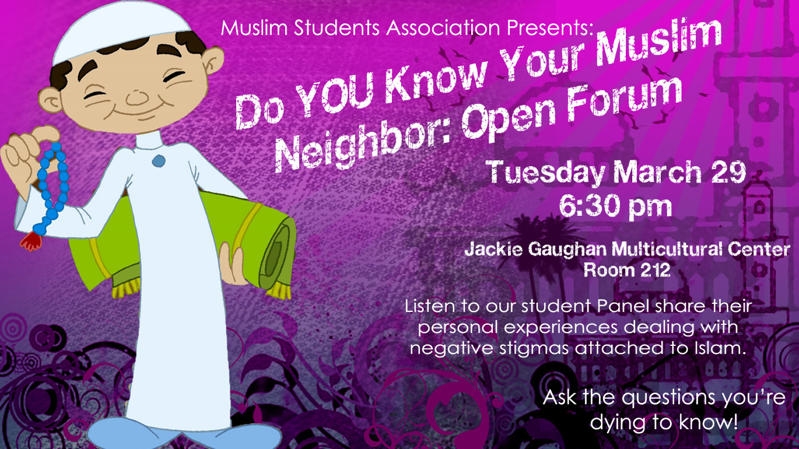The role of campus outreach groups in countering Islamophobia and misinformation

By Omer Kazmi
September/October 2022
Colleges and universities are important American sites. Historically, the college campus was a place for radical change, as was most clearly seen at Kent State University, where, on May 4, 1970, the Ohio National Guard killed four unarmed Vietnam War protestors and injured nine more. This massacre galvanized the anti-war movement, which might have helped end the very controversial war. Since then, four-year research institutions, liberal arts colleges and community colleges have been a place to at least discuss, if not promote and actualize, radical ideas.
This is significant, for these campuses provide the best opportunity to share Islam with others. In fact, people on college campuses are generally more receptive to new ideas. Muslim students involved in outreach activities should take advantage of this. A great effort in this regard is already underway, but the outreach needs to be more directed. Possibly, those who retain even some knowledge about Islam may not be easily swayed by the “Islam” being presented on Fox TV or by Islamophobes.
Pros and Cons
People on college campuses are generally more open to new ideas. So, if a Muslim organization is planning an “Islam Week” or an “Islam 101” event, its members can expect that more people would be interested in attending than at other places. These two key elements cannot be overemphasized, for they determine whether Islam will flourish or not. The underlying idea here is that if people hear about Islam in an unbiased context and can ask questions, then they would be more receptive. If not, at least they may not be so vehemently opposed.
The sira tells us that after the Treaty of Hudaybiyya (628), more people converted and the Muslims flourished. The immediate desire to complete the pilgrimage was delayed, which ultimately benefited the Muslims. The idea is when Muslims can peacefully present and represent Islam, it will ultimately flourish.
However, certain campus downsides can affect how these programs are completed. A few are listed below.
Students know they will only be on campus for a few years, and so their attitude toward its future is ephemeral. This could pose a problem for outreach efforts — Why should they put a lot of effort into attending events or trying to understand Islam’s intricacies? To get them to participate requires long-term incentives. For instance, if an MSA advertises an event with food, students will not show up once the food is gone. This can be a problem because Islam doesn’t always fill a person’s heart immediately. In fact, it often takes time for a person to accept it. With only a fleeting relationship, many attendees will not think about what they learned after leaving the event.
Campuses are not as “free” as it may be generally believed. In fact, some of the beliefs that Islam promotes oppose some of a campus’ core beliefs. As a result, if Muslims try to explain their religion in total, they may experience pushback. One example is the Irvine 11. In 2010, former Israeli ambassador Michael Oren spoke at the University of California, Irvine. The campus MSU organized a “protest” — some students interrupted his speech at various times with slogans before leaving. They were suspended and criminal charges were pressed. There were also other repercussions.
What we learn from this event is that if certain things are mentioned or talked about, a university will likely push back. Considering the protest and what was involved, the criminal charges seemed extreme and unnecessary, but not if we understand that the students attacked the State of Israel, something sacrosanct to the university.
Also, American colleges and universities generally lean left politically, which can pose problems for certain “conservative” aspects of Islam. At the base of many college philosophies is being inclusionary and diverse. This is not, in and of itself, a problem. However, this diversity can go beyond mere tolerance, defined as being accepting of other people’s differences, to actual acceptance, meaning that we cannot find anything wrong or abhorrent about these differences. Thus, if a group of students promotes or does something haram, a Muslim club might have to not only accept that they have the right to do that, but also promote or somehow participate in that haram.
The seriousness of this cannot be understated. The pressure to alter or change aspects of Islam to fit liberal ideals is greater at the college level, and these liberal ideals are changing quickly. What was unacceptable even a decade ago is now becoming the norm, and the tide threatens to take Muslims with it. Anyone conducting outreach on campus must consider this point.
What We Can Do
Considering the issues with the college campus, I would like to highlight some things that those involved in outreach activities should do to counteract the negative aspects of the campus while strengthening the call to Islam.
• First, any presentation on Islam must focus on the message of tawhid relayed to humanity by all of the prophets and messengers. Having a “Wear a Hijab for a Day” or “Fast for a Week” event may allow non-Muslims to be “Muslim” at least for a while, but the primary focus should be on reminding them about God’s Oneness explaining how we understand God. This focus will enable the MSA or MSU to handle the three issues mentioned earlier.
• Such a focus will get the main message across to the attendees, so that even if they have no further contact with Muslims, they will still get Islam’s overall message. Thus, the presenters will not have to worry if they never see those people again. Like the prophets and messengers, a Muslim’s job is to convey what he or she knows of the message. Islam’s most basic message is that there is One God and Muhammad (salla Allahu ‘alayhi wa sallam) is His final messenger.
Focusing on tawhid will help avoid, to a certain extent, those issues that are important to the college. In the Irvine case, the students were protesting Israel’s treatment of Palestinians, which is a Muslim issue — but also a political one. The nation-state is not part of Islamic politics, and so discussing “Palestine” means moving from the religious to the political. Presenting tawhid would have been more beneficial because it would have steered people toward looking at Islam in a positive light, rather than focusing on certain students’ rude behavior — although those students did have a point.
• Finally, reminders of tawhid will keep those involved in outreach focused on Islam. They will be able to withstand the tide of liberalism that threatens to affect Islam’s core beliefs. God, the final Judge, knows His creation better than any human being. Therefore, those involved in outreach can put other moral or ethical issues aside. The need to “fit in” or “be popular” will go down, and Islam can be presented without changes or alterations.
A great deal of work is already being done, as the increase in Muslim events on many campuses nationwide indicates. MSAs should promote these events because colleges are fertile grounds for exchanging ideas. If Muslims can capitalize on the campus’ open nature, Islam may gain wider acceptance in society. However, they must be careful not to let outside influences alter core beliefs by focusing on tawhid. The Kent State shootings show both the radical and conservative nature of colleges. But with the proper focus, Muslims may do more good by having Islamic events on campus.
Omer Kazmi, Ph.D., is a writer, editor and professor of English at Valencia College in Orlando, Fla. He is also the author of “The Temptation of Jamal” (2021).
Tell us what you thought by joining our Facebook community. You can also send comments and story pitches to [email protected]. Islamic Horizons does not publish unsolicited material.
